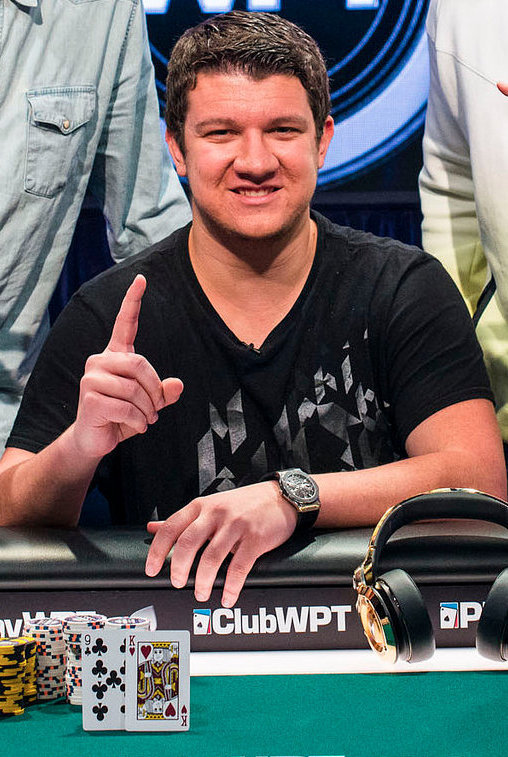Poker Hand of the Week: 10/21/16You Decide What's The Best Play |
|
|
Give us your opinion in the comments section below for your chance at winning a six-month Card Player magazine digital subscription.
Ask any group of poker players how you played your hand and they’ll come up with dozens of different opinions. That’s just the nature of the game.
Each week, Card Player will select a hand from the high-stakes, big buy-in poker world, break it down and show that there’s more than one way to get the job done.
.jpg)
The Scenario
There are 19 players remaining at three tables in a $5,000 buy-in poker tournament. You are already guaranteed at least $16,380 on your investment, but you are currently sitting on a pay jump up to $19,689. The winner of the event will take home $354,335.
With the blinds at 6,000-12,000 with a 2,000 ante, your stack of 1,183,000 is worth a very healthy 98 big blinds. In fact, you are sitting in second place overall, with a field average of around 580,000.
Another big stack, a young, but accomplished poker pro who started the hand with 1,033,000, raises from under the gun to 27,000. The action folds around to you in the cutoff and you look down at A K
K . You three-bet to 85,000 and the blinds fold back to the under-the-gun villain.
. You three-bet to 85,000 and the blinds fold back to the under-the-gun villain.
He then four-bets to 237,000, nearly one quarter of his stack.
The Questions
Do you fold, call or raise? If calling, what is your plan for the flop? If raising, how much? Do you still have any fold equity? How does your opponent’s stack size change your decision? Does your position in the hand change your decision? Is there ever a good reason to fold?
What Actually Happened
 At the 2016 World Poker Tour bestbet Bounty Scramble main event, Kory Kilpatrick opted to five-bet all-in holding A
At the 2016 World Poker Tour bestbet Bounty Scramble main event, Kory Kilpatrick opted to five-bet all-in holding A K
K against Sam Panzica. Panzica called all in with K
against Sam Panzica. Panzica called all in with K K
K , leaving Kilpatrick drawing to one of three aces to come from behind.
, leaving Kilpatrick drawing to one of three aces to come from behind.
The board ran out Q 9
9 6
6 2
2 3
3 , however, and Kilpatrick was left very short stacked.
, however, and Kilpatrick was left very short stacked.
Despite the setback, Kilpatrick rebounded strong and grinded his way to an eighth-place finish, cashing for $43,827. Panzica, however, used his timely double up to make the final table and ultimately take down the tournament for his first WPT title and the $354,335 first-place prize.
What would you have done and why? Let us know in the comments section below and try not to be results oriented. The best answer will receive a six-month Card Player magazine digital subscription.
